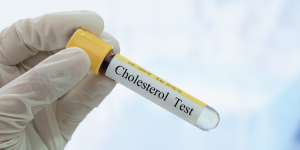Quality Drug Data Not a Guarantee of Future Revenue
Posted by | Fuld & Company

On March 16, 2017, Amgen released positive cardiovascular outcomes data for its PCSK9 inhibitor, Repatha. Yet, it could be tough going to receive wide coverage of the drug from managed care companies due to concerns over high cost and availability of efficacious, economical alternatives. Positive outcomes data alone will not sway payers if the cost-benefit ratio is too high, especially when established and more cost-effective options are available and acceptable.
PCSK9 inhibitors are a newer class of injectable drugs that have been shown to dramatically lower LDL cholesterol levels by up to 60 percent when combined with a statin. Repatha is FDA-approved as an adjunct therapy for adults with heterozygous or homozygous familial hypercholesterolemia or clinical atherosclerotic cardiovascular disease, patients who require additional lowering of lipoprotein cholesterol (LDL) when statins and life style modifications are not providing the desired effect. The outcomes data Amgen presented showed that patients on both Repatha and a statin for 2.2 years were 27 percent less likely to have a heart attack and 21 percent less likely to have a stroke compared to patients only on a statin.
Great data, right? But, there was no improvement indicated in reducing the risk of death from a cardiovascular event. Furthermore, a compiled risk reduction of cardiac death, hospitalization and revascularization procedures (cardiovascular event) measured only 15 percent for Repatha. When these results and the $7,000+ annual cost for Repatha are considered over the course of several years of therapy, analysts calculate1 that it would cost nearly $1 million to prevent a single cardiovascular event. On the day Amgen released the data, its stock price fell by more than 6 percent.
The positive data must be taken in context. There was no demonstrated reduction in cardiac death risk, and the trial enrolled high-risk patients for heart attack or stroke who had exhausted all options.
Payers, who are looking for the most effective and cost-beneficial treatments, will likely stick with statins solely as the primary therapy for hypercholesteremia. The health benefits of statins are well documented and their generic status provides an economical benefit to the healthcare system.
As a result, payers will put Repatha and other PCSK9 inhibitors into a niche for small high-risk populations, such as homozygous familial hypercholesterolemia or individuals with sustained extremely high LDL levels. Longer term outcomes data that demonstrate more significant patient benefits will be needed for payers to move the PCSK9 inhibitors out of this niche position.
Tags: BioPharma, Healthcare & Life Sciences, New Product Launch, Payer, Strategic Planning



















